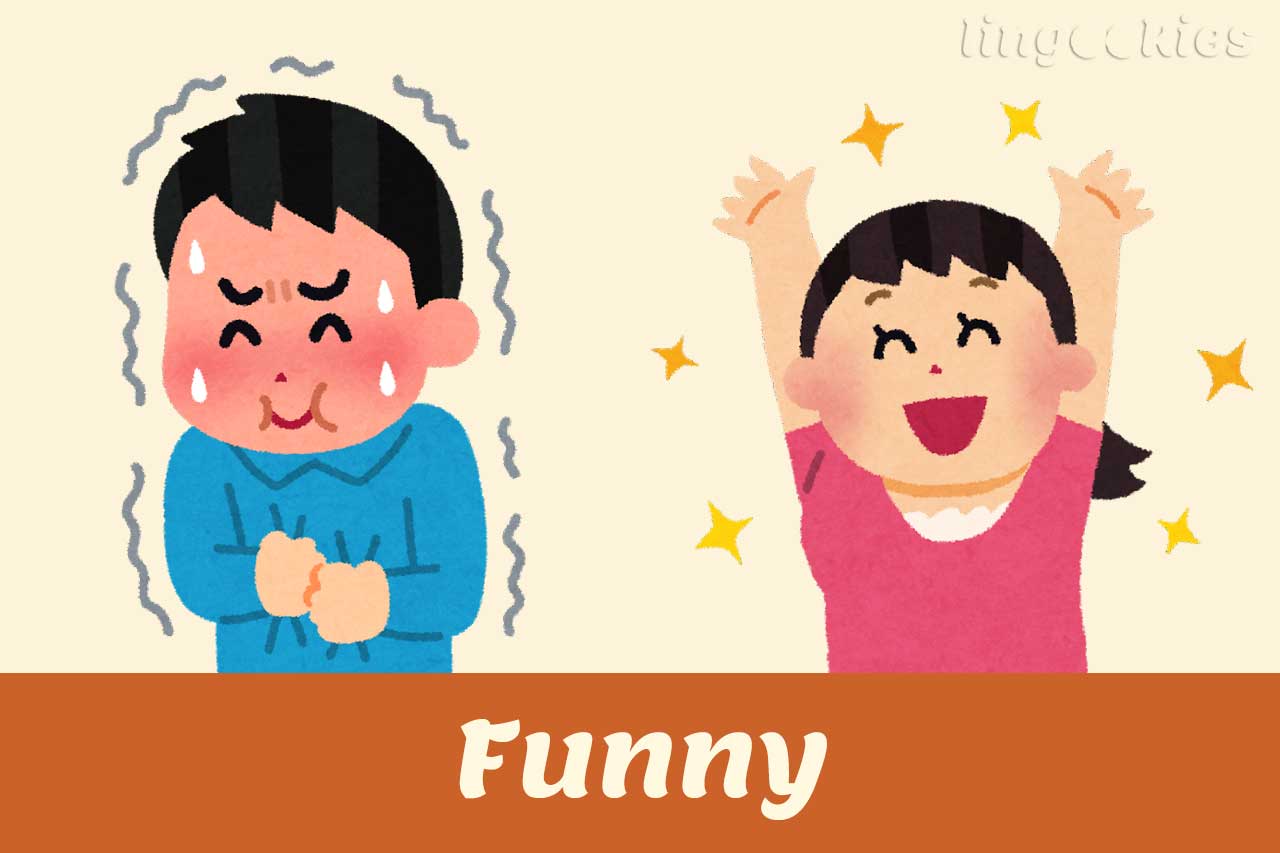Italian word of the day
| Pronunciation | |
| English translation | Funny |
| Origin | From the Italian verb divertire, “to amuse, entertain” |
Different forms of divertente
Like all other adjectives in Italian, divertente needs to match the gender (masculine or feminine) and the number (singular or plural) of the noun.
| Singular | Plural | |
| Masculine | Divertente | Divertenti |
| Feminine | Divertente | Divertenti |
Examples
| Conosci delle barzellette divertenti? | Do you know any funny jokes? |
| Ho visto un film molto divertente sabato sera. | I saw a very funny movie on Saturday night. |
| Matteo pensa di essere divertente, ma è solo antipatico! | Matteo thinks he’s funny, but he’s just obnoxious! |
| Smettila, non è divertente! | Stop it, it’s not funny! |

Buffo is another way to say funny in Italian. It literally means “odd, amusing”.
| Singular | Plural | |
| Masculine | Buffo | Buffi |
| Feminine | Buffa | Buffe |
For example, you can say…
| Questo vestito avrà un aspetto buffo, ma a me piace. | This dress may look funny, but I like it. |
You can also find strano, “strange”.
| Singular | Plural | |
| Masculine | Strano | Strani |
| Feminine | Strana | Strane |
For example, you can say…
| C’è uno strano odore in questa stanza. | There’s a funny smell in this room. |

More free Italian resources
You might want to keep learning Italian online with these free Italian resources:
❤️ If you liked this lesson on the meaning of divertente in Italian, share it with your friends!


